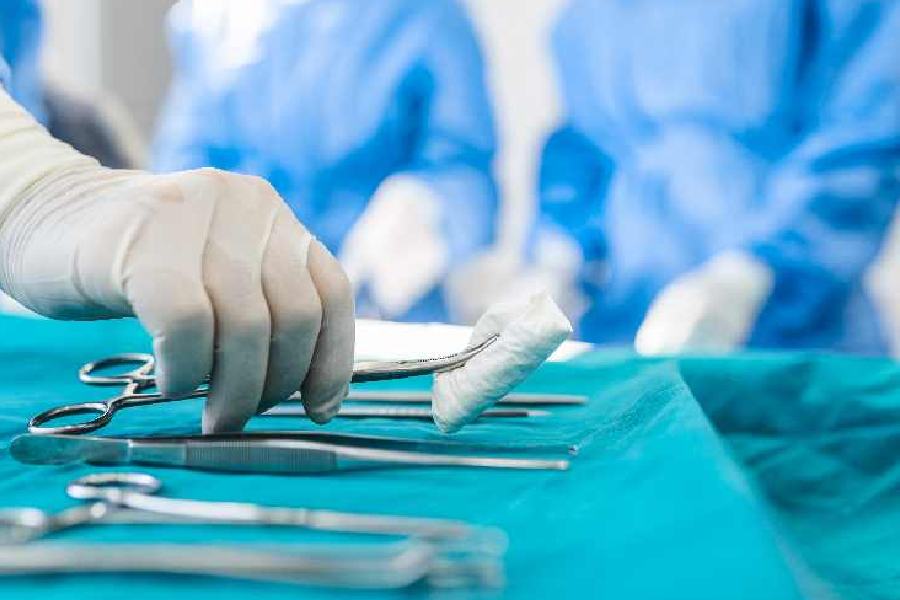Two senior officials in the state health department voiced concern about a lack of interest among young doctors to specialise in cardiothoracic surgery.
Some doctors later told The Telegraph that a drop in demand for such surgeries was one reason for the lack of interest.
Patients themselves prefer "percutaneous intervention" (non-surgical invasive procedure), where the option is available, to an open-heart surgery, said a doctor.
Many medical colleges where cardiothoracic surgery is offered as a specialisation have seats lying vacant, a health department official said.
Procedures such a heart transplant, a valvular heart surgery and coronary artery bypass surgery are performed only by cardiothoracic surgeons.
"There are some specialisations like cardiothoracic surgery whose demand among new doctors has dropped. There is also a dearth of faculty. Doctors are specialising in cardiology but not in cardiothoracic surgery," said Siddhartha Niyogi, the director of state's health services.
Doctors are also showing a lack of interest in specialising in paediatric surgery and neurosurgery, he said.
Narayan Swaroop Nigam, the state's health secretary, said government-run hospitals were facing problems in finding cardiothoracic surgeons. "This is a problem we are facing. There are not enough cardiothoracic surgeons for our hospitals," he said.
Niyogi and Nigam were speaking at a workshop, held in collaboration with the American Association for Thoracic Surgery, at Medica Superspecialty Hospital.
Cardiac surgeries were telecast live to cardiothoracic surgeons attending the workshop as well as to surgeons in several countries.
Doctors said an angioplasty — a procedure to open a blocked coronary artery by inserting a catheter — is faster and a less morbid method of treating a coronary heart disease.
Kunal Sarkar, a cardiothoracic surgeon and senior vice-chairman of Medica hospital, said India has only about 800 active cardiac surgeons and the number is woefully short of the demand.
He said the steady rise in the number of medical graduates in the country is not matched by a commensurate rise in the number of doctors opting for specialisation in cardiothoracic surgery.
The number of bypass surgeries (an open-heart procedure) has come down by 70 per cent because of advancement in interventional cardiology, Sarkar said. Procedures like angioplasty have reduced the need for an open-heart surgery.
Saibal Roy Chowdhury, head of medical operations at Narayana Health's units in eastern India, said a reduced morbidity and a shorter stay at hospital were among the reasons why the demand for open-heart surgeries has dropped.
"Patients always prefer percutaneous procedures. Morbidity is much less in such procedures and the duration of hospital stay is shorter," Roy Chowdhury, a cardiac anaesthesiologist, later told The Telegraph over the phone.
Both Sarkar and Roy Chowdhury, however, said some surgeries need a cardiothoracic surgeon. These include congenital heart diseases. "In some adults, there are indications that do not allow angioplasty," said Roy Chowdhury.
Nigam said the state health department is mulling the possibility of telecasting special classes at one medical college to students at other colleges, in an attempt to work around the problem of faculty shortage in some disciplines.
